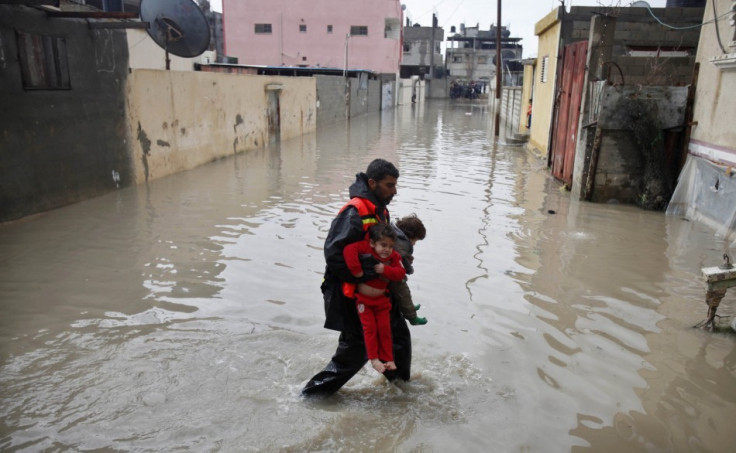Global Warming Report Calls for US to Act - Quickly

Top US scientists predict that 13 American airports could be submerged by rising sea levels.
Additionally, millions of dollars will be needed to repair Alaskan roads, pipelines and sewers where melting permafrost is disrupting the landscape.
The environment is also changing, with increases in the number of "weeds, diseases, insect pests and other climate change-induced stresses," says the draft report by the US National Climate Assessment.
"Corn producers in Iowa, oyster growers in Washington State and maple syrup producers have observed changes in their local climate that are outside of their experience.
" As a result of these changes, health services water supplies, farming and transport are already being strained," says the study.
Months after super-storm Sandy ravaged the US east coast, causing billions of dollars' worth of damage, the report concludes that extreme weather disruption is here to stay.
The blame is laid at the door of our unbridled use of oil, petrol and natural gas. "Global warming is due primarily to human activities, predominantly the burning of fossil fuels," the report states.
"The evidence is clear and mounting. The United States sits at the centre of the climate crisis," said Dr Andrew Steer, president of the World Resources Institute in response to the study.
"Record heat is devastating crops, rivers are drying up, and storms are bearing down on our cities. Climate change is taking its toll on people and their economies, and will only become more intense without a strong and rapid response here in the United States and around the globe. It's not too late to take action, but given lags in policy and geophysical processes, the window is closing."
Bob Ward, of the Grantham Research Institute on Climate Change and the Environment at the London School of Economics told The Observer: "For those outside the US, this report carries a brutal message because it shows that even the world's leading economy cannot simply adapt to the impacts of change.
"The problem clearly needs concerted international action to reduce greenhouse gas emissions and avoid the worst potential consequences."
The 2013 report is by far the most outspoken and uncompromising yet published. It highlights the consequences of global warming that are already having an impact and are expected to become more critical.
Report highlights
- 2012 was the hottest year on record in the United States.
- Climate change threatens human health due to increased extreme weather events, wildfire, decreased air quality, diseases transmitted by insects, food, and water and threats to mental health.
- Sea level rise, combined with coastal storms, has increased the risk of erosion, storm-surge damage, and flooding for coastal communities, especially along the Gulf of Mexico, the Atlantic and Alaska.
- Over the past century, global sea levels have risen by about 20.3 cm.
- Ocean surface waters have become 30 percent more acidic as they have absorbed large amounts of carbon dioxide from the atmosphere.
- This ocean acidification reduces the capacity of marine life such as oysters, clams and crabs to survive, grow, and reproduce, which in turn will affect the entire marine food chain.
© Copyright IBTimes 2025. All rights reserved.





















